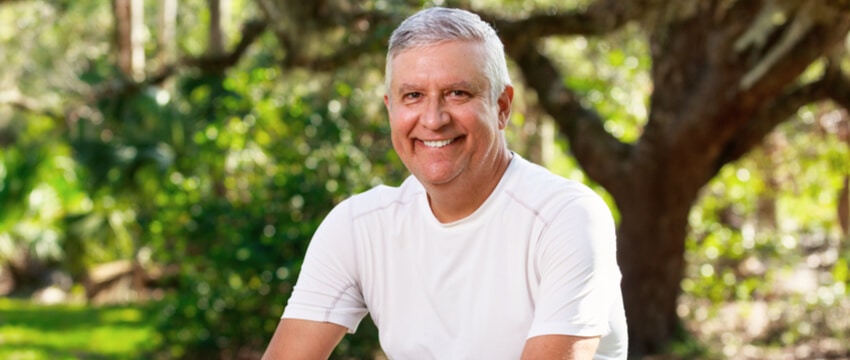Recovery after Cataract Surgery – What’s Normal & What to Look Out For?
It can be a little nerve-wracking to undergo any sort of surgical procedure – for some people, an operation on the eye is even more daunting. Fortunately, cataract surgery is a well-developed procedure with high rates of success in Australia. Although complications are not common, cataract surgery is not immune to postoperative adverse side effects. Read about what you can expect during your cataract surgery recovery.
Recovery After Cataract Surgery
The rate of recovery after cataract surgery often differs between different individuals. It’s important to note that these are general guidelines of what you can expect during cataract surgery recovery, but depending on your eyes, vision, and whether your surgeon encountered any complications during the operation, you may find your experience is slightly different.
After your cataract surgery procedure, your eye surgeon will give you a list of post-operative instructions to optimise your cataract surgery recovery. You’ll also be given a plastic eye shield to tape over your operated eye to protect it. As driving is not advised for at least 24 hours after your operation, you’ll need to have someone to drive you home and for the following day as well if you need to go out. However, immediately after your cataract surgery, it’s a good idea to rest as you’ll probably be feeling a little fatigued and perhaps a bit drowsy if you were given a sedative during the procedure.
 Straight after the operation, your vision will likely still be blurry. Depending on how advanced your cataract was before it was removed, you may find your vision is already improved compared to prior to cataract surgery. However, you can expect it to continue to stabilise and gradually clear over the course of your cataract surgery recovery. After surgery, your eye may be a little puffy and bloodshot, and if you had a local injection of anaesthesia there may also be some slight bruising around the injection site, which will fade over the following days.
Straight after the operation, your vision will likely still be blurry. Depending on how advanced your cataract was before it was removed, you may find your vision is already improved compared to prior to cataract surgery. However, you can expect it to continue to stabilise and gradually clear over the course of your cataract surgery recovery. After surgery, your eye may be a little puffy and bloodshot, and if you had a local injection of anaesthesia there may also be some slight bruising around the injection site, which will fade over the following days.
You can expect some watering of your eye as it heals. As there’s no longer a cataract filtering out light trying to enter the eye, lights may appear brighter than previously, which can cause you to feel glare sensitive. This will settle over a few months. You may also find colours appear brighter and more vibrant. Some patients experience some dry eye symptoms following their cataract operation. In most cases, this also resolves over several months. In the meantime, you can speak to your optometrist or eye surgeon about dry eye treatment, such as lubricant eye drops.
Follow your eye surgeon’s advice about wearing your protective eye shield. You may be recommended to keep it on for the following day and then wear it only at night for a week or so to stop you from accidentally rubbing or bumping your eye during sleep. You’ll also have a few bottles of prescription eye drops to use, including an antibiotic to prevent infection, and one or two anti-inflammatory medications. It’s important to keep using your eye drops as per your eye specialist’s instructions, even if your eye feels better sooner than you expect.
During your recovery after cataract surgery, try to keep the eye as clean and protected as possible. While it’s obvious you should avoid rubbing your eye as it heals, there may be some other situations to steer clear of that you may not have considered. These include dirty and dusty environments, such as construction sites, or even dusty areas around your home like under-house storage. Your eye specialist will also recommend you stay away from unsterile water sources for at least a week after your surgery, including saunas, swimming pools, and the beach, as this greatly increases your risk of an eye infection. You can shower (personal hygiene is still important!), but during the first day or so you may want to avoid getting water into your eye and instead gently clean your face with a damp cloth. Try to avoid soaps, shampoos, and even makeup around your eye area as it heals.
Needless to say, try to take it easy during your cataract surgery recovery. Avoid activities that pose a risk of trauma to your eyes, such as contact sports, or any other strenuous activity.
Most people will take about 4-6 weeks for their eye to heal and vision to stabilise. Your eye surgeon will advise you when it’s okay to get an eye test with your optometrist to update your prescription.
Red Flags
Occasionally, something can go wrong even after the smoothest cataract operation. If you experience any of the following, it’s important to contact your eye surgeon immediately.
- Deteriorating vision, whether a decrease in the clarity of your vision or an area of total vision loss
- Persistent or increasing pain in your eye
- The sudden appearance of flashing lights in your vision or little floating specks or lines
- Persistent or increasing redness of your eye
- Apart from the mild watering expected immediately after your surgery, the development of any discharge from your eye
- Nausea, vomiting, or fever
- Unexpected double vision
You will be scheduled routine review appointments with your eye specialist, typically one week and one month after your operation, but if your eye or vision doesn’t feel quite right at any point, be sure to have it assessed sooner rather than later.
Call us on (03) 9070 3580 today for a consultation.






Leave a Reply
Want to join the discussion?Feel free to contribute!